Nigerians doing their grocery shopping in July 2023 are paying 25% more for staple items than they did a year ago.
Nigeria’s inflation rate stands at about 22.79%, but the prices of staple food items like eggs, bread, evaporated milk, palm oil and plantain have risen by over 25% within the past year.
Using the Nigerian Bureau of Statistics monthly data on food prices, I estimate that a moderate-income family of four, consuming staple foods like egg, milk, bread, rice, beans, garri, beef, catfish, plantains and vegetable oil, spent about 64,000 naira (US$80) on food in May 2022.
By May of 2023, this family would have spent about 80,000 naira ($100), a 25% increase. Data compiled by the World Economic Forum show that the average Nigerian household spends about 56% of its income on food. That’s the highest in the world.
Three other African countries that spend a high percentage of income on food are Kenya (46.7%), Cameroon (45.6%) and Algeria (42.5%). In contrast, the US, UK, Canada and Australia spend 6.4%, 8.2%, 9.1% and 9.8%, respectively.
This big bite out of household income means that food price increases have a severe impact on Nigerians. An estimated 25 million people are facing hunger.
Nigeria’s situation is so dire that President Bola Tinubu has declared a state of emergency on food insecurity.
But will it work? My view as an economist is that fixing Nigeria’s food inflation goes beyond declaring a state of emergency. It requires a bold and well articulated strategy to transform agriculture and rural life.
Why emergency declaration is not enough
Parts of Tinubu’s emergency plan have been tried in the past. For example:
- putting the National Security Council in charge of matters relating to food security and water availability
- providing fertiliser and grain to farmers and households
- creating synergies between the ministries of agriculture and water resources
- establishing a National Commodity Board to stabilise food prices through food reserves and land banks.
Land banks are unused properties acquired and managed by the government. The goal is to use them for agricultural production, housing and other socially beneficial projects. Nigeria has an estimated 500,000 hectares of land banks.
But they won’t be useful to increase food production if the country’s young people aren’t interested in making a living through agriculture.
Most of the measures proposed by the president are short- to medium-term plans. They aren’t long-lasting solutions for the country’s food crisis.
Learnings from India
Nigeria could learn some lessons from other developing countries. One is India, which in the 1950s and 1960s experienced food shortages so severe that it became known as a “begging-bowl” nation.
By making food self-sufficiency its top economic and foreign policy priority in the 1960s, India jettisoned that image and became a major exporter of food.
India’s self-sufficiency in food production is the result of the Green Revolution initiated by Prime Minister Jawaharlal Nehru in the early 1960s.
Programmes under the Green Revolution included pro-agriculture economic policies, land reform and investment in rural infrastructure and agricultural technology.
Land reform: Land reform gave rural people access to agricultural land, supported by government-provided irrigation systems, rainwater catchments and extension officers.
A ceiling of 25 acres (10 hectares) was placed on land ownership per household. Absentee landowners with surplus land were forced to give up some land for redistribution.
Commercial agriculture is often suggested as the panacea for Nigeria’s food crisis. But India’s agriculture is dominated by small and medium farmers. These farmers value their farms more than their houses.
The lesson for Nigeria is simple: agricultural development is not just about giving farmers subsidised fertiliser and low-interest credit. It is also about institutional reform.
Transport network: Perhaps the greatest boost to food production in India was the inexpensive and extensive transport network in the country. Villages are connected to markets by paved roads and rail. State-owned buses are everywhere, even in the most isolated regions of the country.
Transport fares have been kept very low by competition from the ubiquitous “autos” (or three-wheelers) and rickshaws. Farmers can bring their products to the market daily.
Improved productivity: Rising agricultural productivity has benefited farmers and non-agricultural workers alike. Farmers’ incomes have been on the rise, while food prices have been kept low for workers in other sectors.
Higher rural incomes have spurred demand for manufactured goods. Factories have come to rural communities, generating employment.
The industrial and agricultural sectors complement each other. Indian farmers supply an abundance of inputs such as coffee beans, tea leaves, fruit, vegetables and leather products to the country’s agro-processing firms, including global corporations.
No quick fixes
There are no quick and easy fixes for Nigeria’s food crisis. India started its journey to food self-sufficiency in the 1960s, and it took a long time before its agricultural development strategy began to pay off.
The way to solve the food crisis in Nigeria is through sound economic policies that make agriculture attractive (particularly to the youth), as well as institutional reforms that protect land tenure, raise farmers’ productivity, boost supply, and lower prices to consumers, while also ensuring good returns for agricultural investment.
It is doubtful that the mere declaration of a national emergency, with a long wish-list, will succeed in ensuring food security in Nigeria.![]()
Stephen Onyeiwu is professor of Economics & Business, Allegheny College
This article is republished from The Conversation under a Creative Commons license. Read the original article.

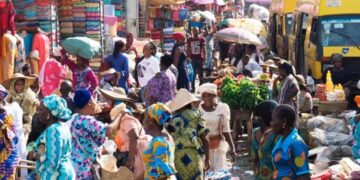

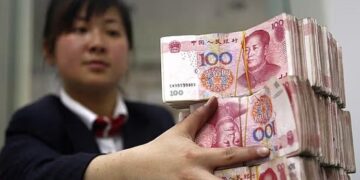

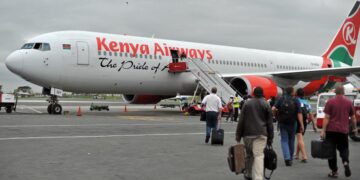



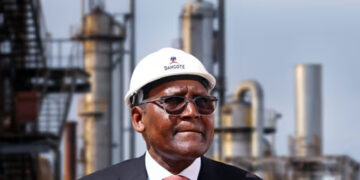
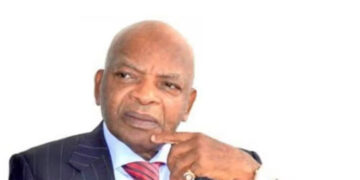







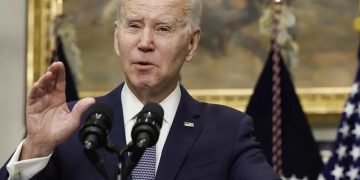
![[Kenya] Digital credit provider Tala disbursed Sh240 billion in loans in eight years 19 [Kenya] Digital credit provider Tala disbursed Sh240 billion in loans in eight years](https://theafricanbusiness.com/wp-content/uploads/2023/02/TALA-APP-360x180.jpg)













